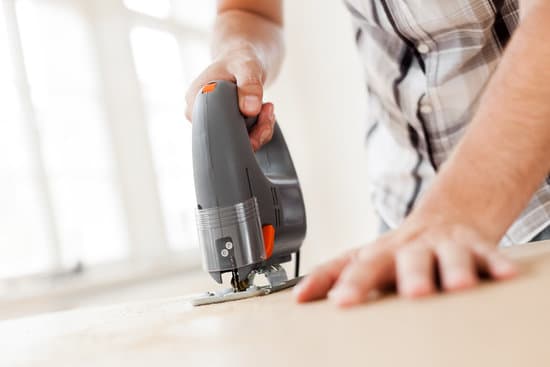Insurance companies play a vital role in providing protection and financial coverage for homeowners in the event of unforeseen circumstances, such as accidents, natural disasters, or property damage. However, the question remains: can insurance companies require home improvements? In this article, we will delve into the complexities of insurance companies’ involvement in home improvement projects.
Homeowners may find themselves facing requests from insurance companies to make certain improvements to their properties as a condition of coverage. This requirement can vary depending on the terms of the policy and the specific needs identified by the insurance company. Understanding why insurance companies may ask for these improvements is crucial in ensuring comprehensive coverage and protection for homeowners.
Exploring the legal basis behind insurance companies’ requirements for home improvements is essential to grasp the justification behind such demands. Laws and regulations govern how insurance companies operate and mandate what they can request from policyholders. By delving into this aspect, homeowners can better understand their rights and obligations when it comes to meeting these requirements.
The Legal Basis
Insurance companies have a significant role in home improvements, and they are legally allowed to require certain changes or upgrades to ensure the safety and security of the insured property. The legal basis for insurance companies’ requirements for home improvements stems from their obligation to mitigate risks and prevent potential damages that could lead to costly claims. These requirements are usually outlined in the insurance policy, which homeowners agree to when they sign up for coverage.
In most cases, insurance companies can require home improvements that directly impact the safety and structural integrity of the property. For example, they may mandate the installation of smoke detectors, fire alarms, or security systems to reduce the risk of fire or burglary. Additionally, insurers may ask homeowners to make repairs to faulty electrical wiring, plumbing leaks, or damaged roofs that could result in significant damage if not addressed.
It is essential for homeowners to understand their rights and responsibilities when it comes to insurance companies’ demands for home improvements. While insurers have a legal basis for requiring certain upgrades, homeowners also have rights protected by laws and regulations. If a homeowner believes that an insurance company’s requirement is unreasonable or unnecessary, they can seek guidance from legal professionals or regulatory authorities to address any disputes promptly.
| Insurance Companies Requiring Home Improvements | Laws Governing Home Improvement Requirements |
|---|---|
| Smoke detectors | Fire codes and safety regulations |
| Security systems | Homeowners association rules |
| Roof repairs | Building codes |
Types of Home Improvements Insurance Companies May Require
Structural Modifications
Insurance companies may require homeowners to make structural modifications to their homes in order to mitigate risks and potential damages. This can include reinforcing foundations, upgrading roofing materials, or installing hurricane shutters. These improvements are typically aimed at reducing the likelihood of severe damage in the event of natural disasters or other unforeseen events. While these requirements may initially seem burdensome, they can ultimately help protect both the homeowner and the insurance company from costly claims.
Upgrades to Electrical and Plumbing Systems
Another common type of home improvement that insurance companies may require is upgrades to electrical and plumbing systems. Outdated wiring or plumbing can pose significant risks, such as fire hazards or water damage. Insurance companies may mandate that homeowners update these systems to meet current safety standards. While this may require an upfront investment, it can lead to lower insurance premiums and greater peace of mind for the homeowner.
Installation of Security Measures
In an effort to reduce the risk of theft or vandalism, insurance companies may also require homeowners to install security measures such as alarm systems, surveillance cameras, or deadbolt locks. These improvements not only enhance home security but can also result in lower insurance premiums due to reduced risks of burglary or property damage. While some homeowners may view these requirements as an added expense, they
Pros and Cons of Insurance Companies Requiring Home Improvements
Insurance companies requiring home improvements can have both advantages and disadvantages for homeowners.
Pros
One of the main benefits of insurance companies requiring home improvements is that it can help prevent further damage to the property. By addressing potential risks or vulnerabilities, such as fixing a leaky roof or reinforcing structures, homeowners can reduce the likelihood of costly repairs in the future. Additionally, some insurance companies may offer discounts or lower premiums to policyholders who make specific safety upgrades, incentivizing proactive home maintenance.
Another advantage is that mandatory home improvements from insurance companies can potentially increase the overall value of the property. Enhancing safety features or making aesthetic enhancements may not only satisfy insurance requirements but also improve the marketability of the home if the owner decides to sell in the future. Home improvements that comply with insurance company demands can give homeowners peace of mind knowing that their property is more secure and well-maintained.
Cons
On the flip side, some homeowners may feel burdened by insurance companies’ requirements for home improvements, especially if they come with significant costs. Depending on the extent of upgrades needed, homeowners might face financial strain or difficulty in meeting sudden demands for renovations. This could lead to disputes between policyholders and insurers over who should bear the expenses incurred.
Additionally, there may be concerns about privacy and intrusion when insurance companies dictate specific modifications to a homeowner’s property. Some individuals may view these requirements as an infringement on their autonomy and control over their own homes. Furthermore, meeting certain home improvement criteria set by insurance companies could require time-consuming processes and potentially disrupt daily routines for homeowners.
In weighing the pros and cons of insurance companies requiring home improvements, homeowners should carefully consider their individual circumstances and consult with legal counsel if needed to understand their rights and obligations in such situations. Ultimately, striking a balance between maintaining property safety and preserving homeowner autonomy is crucial in navigating this aspect of insurance policies.
The Process
Insurance companies have the authority to require certain home improvements as part of their policies and contracts with homeowners. These requirements are often aimed at reducing risks and preventing potential damage to the property.
Common home improvements that insurance companies might mandate include installing proper security systems, updating electrical wiring, reinforcing the roof structure, or even replacing old plumbing fixtures. By ensuring these improvements are in place, insurance companies believe they can mitigate the likelihood of claims related to theft, fire, water damage, and other hazards.
The decision-making process for insurance companies when assessing home improvement requirements typically involves a thorough inspection of the property. Insurers will evaluate the condition of various aspects of the home to identify any potential risks or vulnerabilities. Based on this assessment, they may issue specific directives for necessary upgrades or enhancements. It is essential for homeowners to cooperate with these assessments and comply with any mandated improvements to maintain coverage and prevent disputes in case of future claims.
While insurance companies requiring home improvements can offer benefits in terms of risk reduction and enhanced property protection, there are also drawbacks that homeowners should be aware of. Some may find the cost of implementing these improvements burdensome or unnecessary, especially if they believe their homes are already adequately secure.
Additionally, disputes can arise if there is a disagreement between the insurer and homeowner regarding the necessity or extent of required upgrades. Therefore, clear communication between both parties is crucial to ensure a fair and reasonable outcome for all involved.
| Home Improvement | Reason |
|---|---|
| Install security system | Reduce risk of theft |
| Update electrical wiring | Prevent fire hazards |
| Reinforce roof structure | Minimize damage from storms |
Rights of Homeowners
As a homeowner, it is essential to understand your rights when dealing with insurance companies requiring home improvements. While insurance companies have the right to set certain requirements for policyholders to maintain coverage, there are also limitations to what they can enforce. Here are some key points to keep in mind if you find yourself disagreeing with your insurance company’s demands for home improvements:
- Review Your Policy: The first step is to carefully review your insurance policy to understand the specific provisions related to home improvement requirements. Make sure to check if there are any clauses that outline the insurer’s right to request certain upgrades or repairs.
- Seek Legal Advice: If you believe that the home improvement demands from your insurance company are unreasonable or not mandated by the policy, it may be wise to seek legal advice. An experienced attorney can help you navigate the situation and determine if you have grounds to contest the insurer’s requirements.
- Negotiate with Your Insurance Company: In some cases, it may be possible to negotiate with your insurance company regarding the requested home improvements. You can present alternative solutions or assessments from independent experts to support your argument and reach a compromise.
Remember that as a homeowner, you have rights when it comes to dealing with insurance companies’ requests for home improvements. By understanding the legal framework, seeking appropriate guidance, and advocating for your position, you can protect your interests and ensure fair treatment in this process.
- Document Everything: Keep detailed records of all communication with your insurance company regarding home improvement requirements. This includes emails, letters, phone calls, and any documentation related to the demands made by the insurer.
- Stay Informed: Stay informed about local ordinances and regulations that may impact the scope of home improvements required by insurance companies. Being knowledgeable about these factors can help you make informed decisions and defend your rights as a homeowner.
- Consider Alternative Options: If you are unable to reach a resolution with your insurance company regarding home improvements, consider exploring alternative options such as filing a complaint with regulatory authorities or seeking assistance from consumer advocacy organizations.
By being proactive, informed, and assertive in asserting your rights as a homeowner, you can effectively respond if you disagree with your insurance company’s home improvement demands while protecting your property and financial interests.
Case Studies
Insurance companies play a significant role in ensuring the safety and protection of homeowners through their home insurance policies. In some cases, insurance companies may require specific home improvements to mitigate risks and prevent potential damages. These requirements are typically based on the legal regulations and guidelines that govern the insurance industry, as well as the individual circumstances of each homeowner’s property.
Here are some real-life examples of situations where insurance companies may require home improvements:
- Installation of fire sprinkler systems to reduce the risk of fire damage.
- Upgrading roofing materials to improve resistance against strong winds or hail.
- Adding storm shutters or impact-resistant windows to protect against hurricanes or tornadoes.
These examples demonstrate how insurance companies prioritize preventive measures to minimize risks and ensure the safety of homeowners. While these requirements may seem stringent, they are intended to secure both the homeowner and the insurer from potential financial losses in case of unforeseen events.
In some cases, homeowners may view these requirements as an added burden or cost. However, it’s important to weigh the pros and cons of complying with insurance company demands for home improvements. Ultimately, investing in these upgrades can enhance the overall safety and value of your property, while also potentially lowering your insurance premiums in the long run.
Tips for Homeowners
When it comes to navigating home improvement requirements from insurance companies, homeowners may feel overwhelmed or unsure of where to start. However, understanding the process and knowing how to advocate for your rights can make a significant difference in ensuring that any necessary improvements are handled appropriately. Here are some tips for homeowners on how to navigate home improvement requirements from insurance companies.
First and foremost, it is crucial for homeowners to thoroughly review their insurance policy to understand what specific requirements may be outlined by their insurance company. This includes knowing what types of home improvements may be requested and under what circumstances they can be required. By being informed about the terms of their policy, homeowners can better prepare for potential requests from their insurance company.
Furthermore, homeowners should proactively maintain their property to prevent any potential issues that could prompt the need for home improvements mandated by their insurance company. Regular upkeep and inspections can help identify problems early on and address them before they escalate into larger issues that may trigger demands for improvements. Additionally, keeping documentation of all maintenance and repairs can serve as evidence in case of disputes with the insurance company regarding the necessity of certain improvements.
Lastly, if a homeowner receives a request from their insurance company to make home improvements that they believe are unnecessary or excessive, it is important to communicate effectively with the insurer. Seeking clarification on the reasons behind the request and providing any relevant information or alternative solutions can help facilitate a constructive dialogue.
In cases where disagreements persist, seeking legal advice or mediation may be necessary to protect the homeowner’s interests and ensure fair treatment throughout the process. By following these tips, homeowners
Conclusion
In conclusion, insurance companies do have the authority to require home improvements under certain circumstances. While this may seem like an added burden for homeowners, it is important to acknowledge the role that insurance companies play in ensuring the safety and security of properties. By requiring specific home improvements, insurance companies aim to mitigate risks and prevent potential damages that could lead to costly claims in the future.
However, it is crucial for homeowners to be aware of their rights when faced with demands for home improvements from insurance companies. Understanding the legal basis and regulations that govern such requirements can help homeowners navigate this process more effectively. In cases where there is disagreement with the insurance company’s demands, homeowners have the right to challenge these requirements and seek alternative solutions.
Ultimately, communication and cooperation between homeowners and insurance companies are key in addressing home improvement requirements. By staying informed, actively participating in the decision-making process, and seeking professional advice when needed, homeowners can ensure that any necessary improvements are made effectively and efficiently. While navigating through these requirements may seem daunting at times, keeping an open dialogue with your insurance company can lead to a safer and more secure living environment for all parties involved.
Frequently Asked Questions
What Makes a House Uninsurable?
A house may be deemed uninsurable for a variety of reasons, such as severe structural issues, outdated electrical or plumbing systems, or being located in a high-risk area prone to natural disasters like earthquakes or floods. Insurance companies want to minimize their risk exposure.
Why Would an Insurance Company Deny Coverage on a Home?
Insurance companies may deny coverage on a home due to factors like a history of frequent claims by previous owners, the property’s poor maintenance or dilapidated condition, presence of hazardous materials like asbestos or lead paint, or if the home is vacant for an extended period. This decision is typically based on risk assessment.
Does Home Insurance Cover a Rotting Deck?
Home insurance coverage for a rotting deck depends on the specific policy and circumstances. In general, if the rot is considered regular wear and tear due to age or lack of maintenance, it may not be covered.
However, if the damage is sudden and accidental (like from a storm), it could potentially be covered under certain policies with proper documentation and support. Reviewing your policy with your insurance provider is recommended.

I’m thrilled to have you here as a part of the Remodeling Top community. This is where my journey as an architect and remodeling enthusiast intersects with your passion for transforming houses into dream homes.





